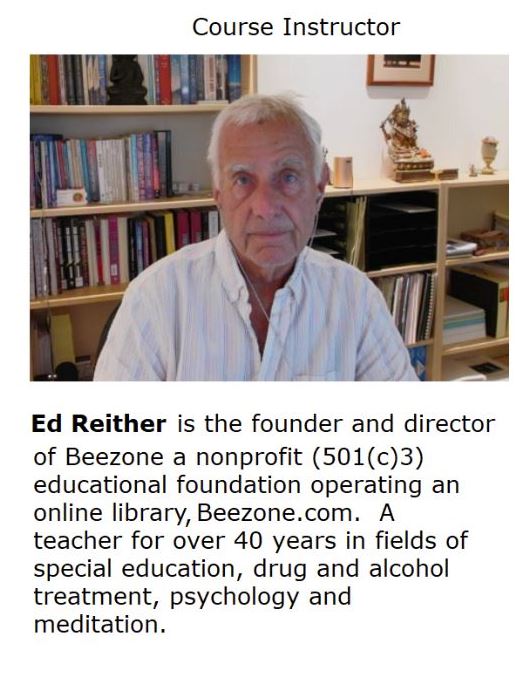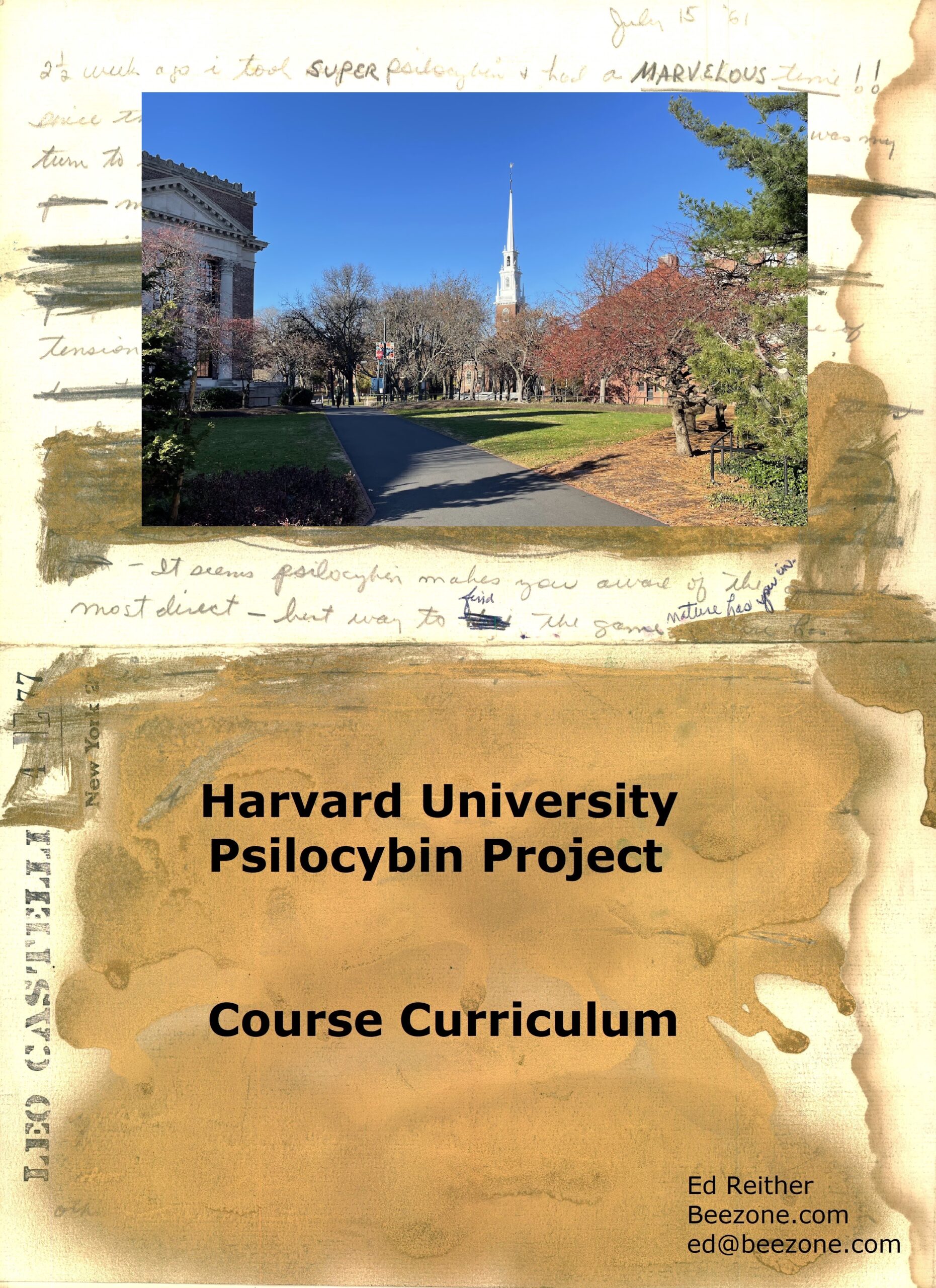
Harvard Psilocybin Project Course
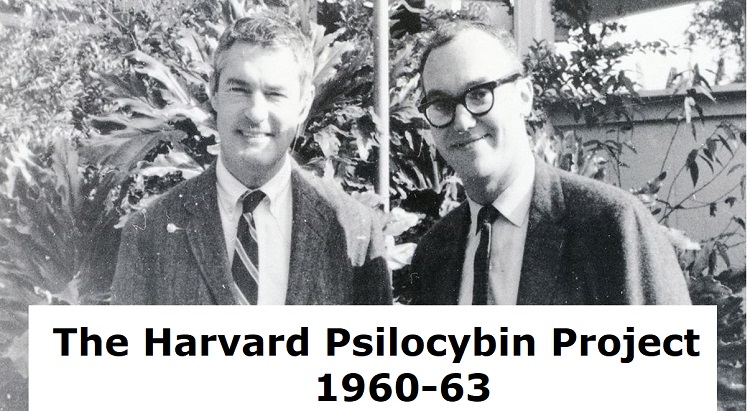
Dates to be announced
Introduction
Embark on a fascinating journey into the annals of history with our course, “The Harvard Psilocybin Project, 1960 to 1963,” a captivating exploration tat was offered by the Harvard Institute for Learning and Retirement during the fall of 2023. Delve into the profound and tumultuous story of a groundbreaking initiative initiated by Timothy Leary, Frank Barron, and Richard Alpert, known as Ram Dass, as they sought to unravel the therapeutic potential of psychedelic drugs. This course unfolds the remarkable narrative of the Harvard Psilocybin Project, a pivotal chapter in American history that sparked a cultural revolution and now, more than 60 years later, resurfaces as a respected realm of research and therapeutic promise.
At the core of this venture was the revelation that psilocybin, the mind-expanding mushroom, exposed hidden realms to ordinary waking consciousness. The project, once a beacon of exploration, administered nearly 400 trials to willing and informed participants, including creative artists, poets, authors, and university professors. However, the project’s trajectory took an unexpected turn, challenging the stability and authority of Harvard University under the direction of Harvard’s Center for Personality Research. Following three tumultuous years, the project was shuttered, leading to the dismissal of Harvard professors Timothy Leary and Richard Alpert, both cast under the spotlight of national media coverage.
Why does this course hold such significance today? The legacy of the Harvard Psilocybin Project extends far beyond its origins, influencing contemporary research and therapeutic applications of psychedelic substances. Harvard Medical School, Massachusetts General Hospital, and Harvard Law School have embraced this field, actively pursuing research, legal considerations, and health policy advancements related to psilocybin. The Harvard Divinity School, in collaboration with the Center for the Study of World Religion, engages with the Harvard Psychedelic Project, shedding light on the intricate intersections of psychedelics, religion, and spirituality.
As we unravel the layers of the Harvard Psilocybin Project, we discover it as a product of its time—an outgrowth of scientific, religious, psychological, philosophical, and cultural evolution that transcended deeply entrenched 19th and 20th-century beliefs. This course, which you are about to embark upon, will meticulously explore the three transformative years within the Harvard Center for Personality Research, examining the ripple effects across various university departments and the broader academic, social, and political landscape. Uncover the rich history of mind-expanding substances, tracing their evolution from societal shadows to the forefront of academic, scientific, legal, psychological, and medical discussions.
The discovery of mind-expanding substances such as psilocybin, mescaline, and LSD in the 1960s was a significant event in the history of human thinking. It challenged the established order of post-World War II culture and threatened the traditional beliefs and understanding of how the world was supposed to operate. The documentation of experimentation with these substances can be traced back to Germany after the war when scientists tested them on prisoners to control their minds. However, the use of these substances by musicians, poets, authors, and intellectuals in North America and Europe brought about a new understanding of the human mind and consciousness. Even though the Harvard Psilocybin Project was shut down, discovering and exploring these substances continued, opening up new avenues of human thinking and understanding. How this will develop depends on many factors we consider during the 12 weeks this course meets.
Join us for an immersive learning experience featuring engaging lectures, thought-provoking video presentations, stimulating discussions, and insights from outside experts. This course, poised at the intersection of history and contemporary understanding, promises to unravel the complexities of the Harvard Psilocybin Project and its enduring impact on our evolving perspectives of mind-expanding substances.
Course – Full Semester
_______________________
“When Hiroshima was destroyed by an atomic bomb in 1945, it is said, the first living thing to emerge from the blasted landscape was a …mushroom.”
Anna Lowenhaupt Tsing, The Mushroom at the End of the World (Princeton: Princeton Press, 2015).
***
“It is fitting and natural that the Harvard intellectual community be the first to grapple with this new philosophic and practical issue and that the University of William James be given the first chance to accept or reject the educational potentialities of consciousness-expanding drugs.”
Richard Alpert and Timothy Leary, Harvard Crimson, 1962
***
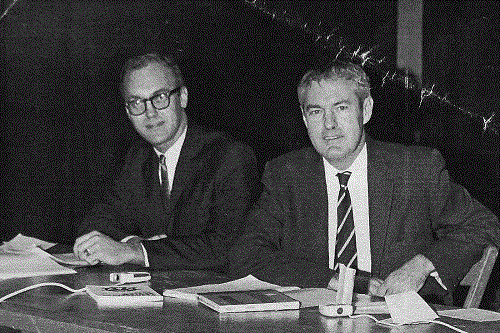
Timothy Leary, Frank Barron, and Richard Alpert (Ram Dass) founded the Harvard Psilocybin Project in 1960 to research the therapeutic effects of psychedelic drugs. They discovered the drug’s effect depended primarily on the ‘set’ of the person’s present state of mind and the setting or environment. Psilocybin opens up what is usually ‘hidden’ to ordinary waking consciousness, which can be enlightening but also terrifying.
The project is said to have administered (documented) close to 400 trails to willing and informed students, participants, creative artists, poets, authors, and university professors. Unfortunately, the project, under the guidance and direction of Harvard’s Center for Personality Research, became problematic and threatened the stability and authority of the university. After three tremulous years the project was shut down, and two Harvard professors were dismissed under widespread national news.
The Importance and Focus of the Class
The Harvard Psilocybin Project was not only about Harvard, a mind-expanding mushroom, or a single study conducted at one of the country’s most elite and prestigious universities. The project represented a moment in American history that exploded into a cultural revolution that is only now beginning to return after more than 60 years as a respectable and valuable areas of research.
Today, Harvard Medical School and Massachusetts General Hospital have an active Psilocybin research center and clinic administering psilocybin as an effective medication for many serious emotional and physical disorders. The Harvard Law School has a program devoted to Psychedlics Law and Regulation at the Petrie-Flom Center for Health Law Policy. Harvard Divinity School and its Center for the Study of World Religion regularly work with The Harvard Psychedelic Project. This student organization holds nationwide conferences at the university on how psychedelics, religion, and spirituality work together.
When we look at The Harvard Psilocybin Project of 1960 today, we can see it was an outgrowth and an emergence of a scientific, religious, psychological, philosophical, and cultural evolution (r-evolution) that was exploding and transcending 19th and 20th century deeply held institutional and religious beliefs. This program will explore and develop these and other significant areas of yesterday’s and today’s understanding.
This course will focus on the three years it ran at Harvard’s Center for Personality Research and other departments within the University, along with other academic, social, and political controversies it created. In addition, the course will consider the history of mind-expanding substances and recent research in academic, scientific, legal, psychological, and medical fields – while discussing current thinking about psilocybin and mind-expanding substances in general. Our sessions will include lectures, video presentations, discussions of the readings, and a guest speaker, Gunther Weil, the last remaining member of the project.
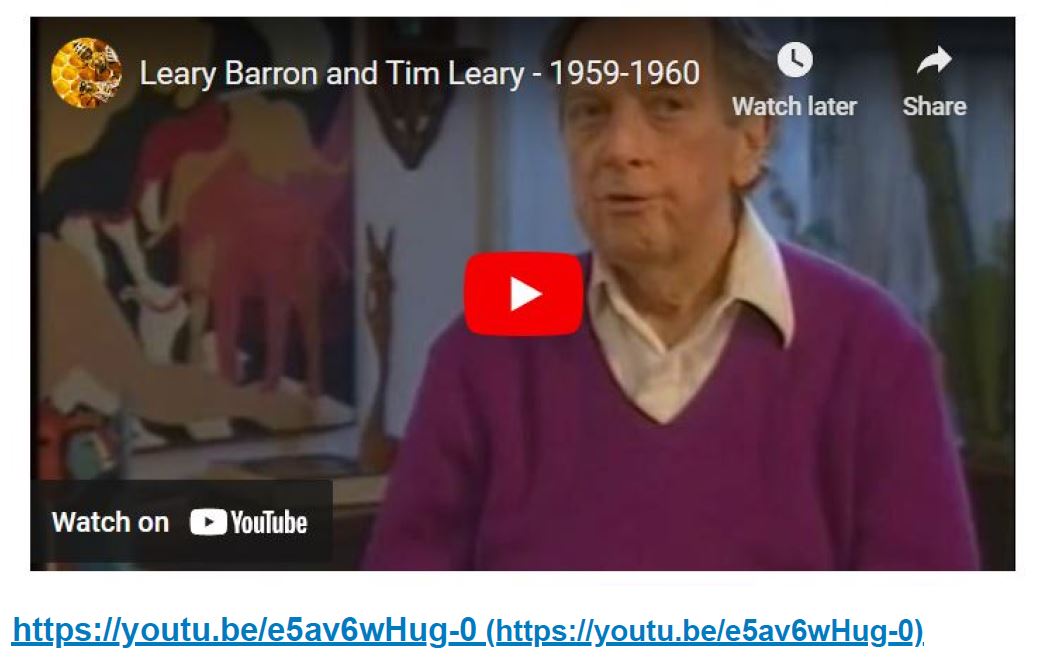
|
Session |
Topics |
Other Information |
|
Session |
Introduction |
|
|
Session |
The Beginnings – 1960 |
|
|
Session |
Harvard and Sacred Plants |
|
|
Session |
The Return to Harvard – 1960 | |
| Session | Things Look Bright (kind of) – 1961 |
|
|
Session |
LSD Enters the Program | |
|
Session |
First Experiments – Prisoners and Divinity Students – 1961 |
|
|
Session |
The Media – 1962 |
|
|
Session |
The Handwriting is On the Wall – 1962/3 | |
|
Session |
Alpert and Leary Return to Harvard |
|
|
Session |
Harvard and Psilocybin Today |
|
|
Session |
The Future of Mind-Expanding |
|
|
Session |
Substances | |
|
Readings |
Additional Readings |
|
|
Video Recordings |
|
|
|
Audio Recordings |
|
|
|
|
……. |
|
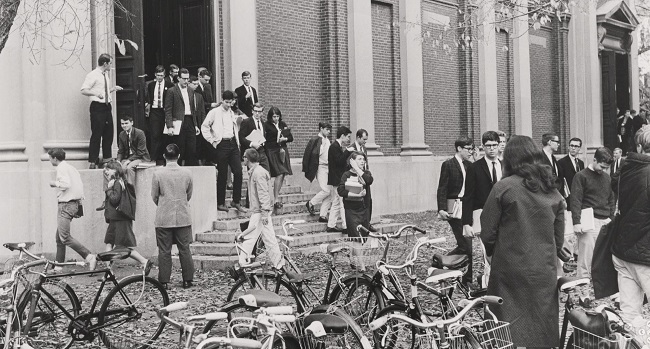
The Setting
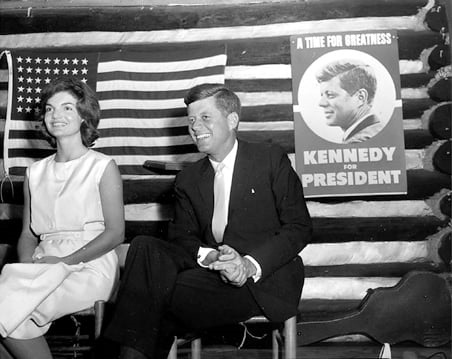
An Era of Promise
Harvard – 1960
Current News
Boston Globe – Mass. lawmakers propose decriminalizing ‘magic mushrooms’
Legislature
House of Representatives:
An Act concerning the legal use of the plant medicine known as psilocybin for therapeutic,
spiritual, and medicinal purposes
By Representative Boldyga of Southwick, a petition (accompanied by bill, House, No. 3605)
Senate:
An Act regulating the safe use of psilocybin
By Ms. Moran, a petition (accompanied by bill, Senate, No. 1263) of Susan L. Moran for legislation to regulate the safe use of psilocybin. Mental Health, Substance Use and Recovery. (PDF)
Current Conversations
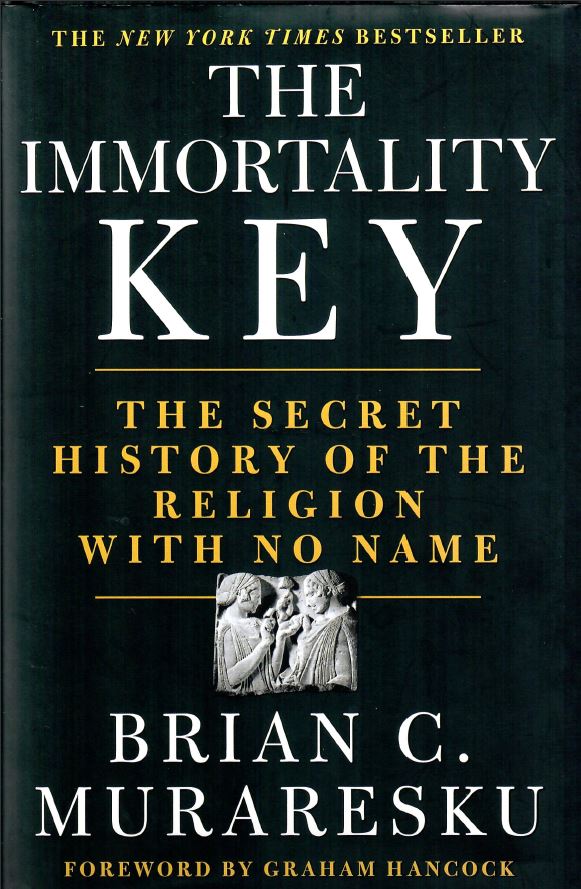 Mark J. Plotkin talks with Brian C. Muraresku
Mark J. Plotkin talks with Brian C. Muraresku
Mark J. Plotkin, a Harvard and Yale-trained ethnobotanist, Brian C. Murakesk, author of ‘The Immortality Key’
“I don’t know why it’s taken 60 years”
Mark J. Plotkins: So I want to wind up here with a bit of a loaded question, which goes back to something we touched on, and that is the history of hallucinogens in Harvard, which is something which has been fascinating me for 40 years. Many people think that hallucinogens and their study began with Leary and Alpert, God forbid, in the ’60s. More of us in the know like to think it began with Schultes in the ’30s and ’40s. Those of us who’ve really dug deeper, like you and I, know it began with William James prior to the turn of the century. But I’d like to know your perspective, having spent so much time at my old alma mater, as the contributions and the mistakes made by Leary and Alpert, which very few people address these days, where people continue to lionize them without calling attention to the pitfalls that they did fall into.
Brian Muraresku: That is a loaded question. Yeah, I haven’t talked about this publicly, but Leary is still a bit of a four letter word on campus, and just in generality has been having, I mentioned these conversations with folks from the divinity school to the law school to the medical school to the faculty of arts and sciences, just that there’s a lot of genuine organic interest in this topic. And I noticed over the past couple years that the specter of Leary, the shadow of Leary kind of hangs in the corner of every conversation. Because for those who don’t know, the pied piper of psychedelic enlightenment, Mr. Leary, gets a lot of flack for what happened at Harvard in the early 1960s.
And when he and Dick Alpert, who became Ram Dass were kicked off campus, that was the beginning of a long hiatus in these studies. So we’re talking about, this is about 60 years. So from 1962 until where we sit today, it’s been a full 60 years since some of this controversy erupted. But like we talked about at the very beginning, despite that psychic load, I think that the clinical work certainly made an impact. The fact that a guy named Michael Pollan teaches English at Harvard in the fall makes a difference, informs the conversation. And I think that people are reapproaching this topic now. I don’t know why it’s taken 60 years, but reapproaching it with a real sober lens. And it’s been really interesting to witness.
Source: Tim Ferriss Show, December 29, 2022
Preface
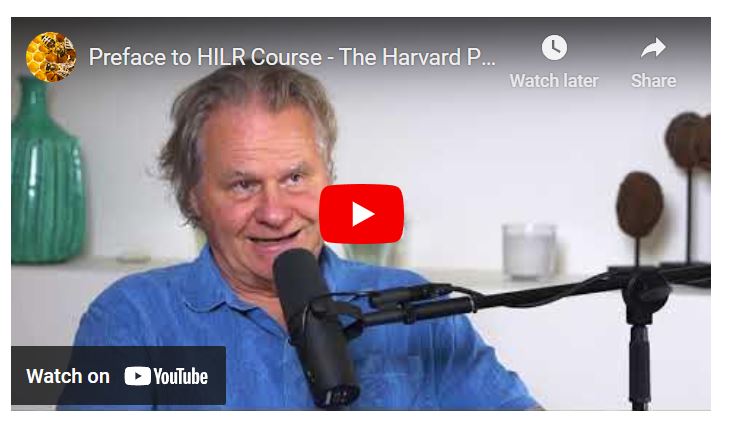 Wade Davis, Ethnobotanist and author of ‘The Wayfinders’, ‘The Serpent and the Rainbow’, talking with Mark Hyman, M.D. of the Ultra Wellness Center and author of ‘The Doctors Farmacy‘
Wade Davis, Ethnobotanist and author of ‘The Wayfinders’, ‘The Serpent and the Rainbow’, talking with Mark Hyman, M.D. of the Ultra Wellness Center and author of ‘The Doctors Farmacy‘
(17:50)
